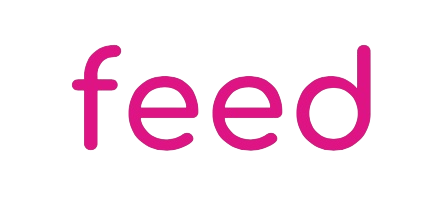BMJ Rapid Response: Fears grow of nutritional crisis in the UK
Re: Fear grow of nutritional crisis in lockdown UK
Dear Editor
Baraniuk comprehensively highlights the crisis facing the UK as more families fall into food poverty. The coronavirus pandemic “has shone a light on existing inequalities” and these have escalated. Indeed, the Independent Food Aid Network report a 177% increase in the number of emergency food parcels distributed by independent food banks comparing May 2019 to May 2020 (1) and in a 2020 survey by Little Village, 83% of baby banks reported that families are concerned about being able to afford essentials (2).
Guidelines for food and baby banks produced by UNICEF (3) and the Baby Feeding Law Group (4) advise organisations not to accept donations of, or provide infant formula to formula feeding families, reiterated in an updated guideline produced during lockdown (5). This is in spite of reports such as the All-Party Parliamentary Group on Infant Feeding and Inequalities 2018 (6) inquiry which showed that families living with food insecurity were forced to practice unsafe infant feeding measures, such as diluting infant formula or introducing solid food earlier, and work carried out by the National Aids Trust who note that families are going without in order to afford infant formula milk putting parents living with HIV at risk (7).
Many food and baby banks are happy to provide first infant formula to formula feeding families but are struggling against the guidelines imposed by UNICEF (3,5). This confusion is further exacerbated by discrepancies both within and between health boards throughout the UK, where some health and social care professionals will refer families to baby banks for formula, and others refuse.
Those who oppose provision of formula point towards Healthy Start vouchers, monetary provision or referral through the benefits system as solutions. However, these schemes are of limited use; it is not clear where monetary provision would come from, not everyone qualifies for vouchers, there is often a long waiting period for state benefits, the provision doesn’t cover the cost of formula, and as the vouchers or funds can be used for milk, fruit and vegetables, a larger family may need to use these funds to support the entire family, resorting to inappropriate alternatives for the infant.
Baby banks are not the answer to food poverty. However, while foodbanks and baby banks exist and the impact of food poverty on infants and children is rising, we need ensure that the most vulnerable members of society have equal access to food, and are not lost under the bureaucracy and politics of infant feeding. This can be achieved by supporting foodbanks and baby banks to safely provide infant formula for formula fed babies.
For more information on how we can do this please see our website, feeduk.org
Rosie McNee, Feed;
Erin J Williams, Feed
Stephanie Maia, Feed
Kate Wishart, Feed;
Clare Murphy, bpas
Deborah Gold, NAT
Danielle Fleeter-Horn, Aber Necessities
REFERENCES
Independent Food Aid Network (2020) Independent Food Bank Emergency Food Parcel Distribution in the UK: Comparing February – May 2019 with February – May 2020. Retrieved from: https://uploads.strikinglycdn.com/files/0f6e2f2c-8b8a-4149-8eab-053693cc...
Little Village (2020) Survey of Baby Banks on the Impact of the Coronavirus Pandemic on their Operations. Retrieved from: https://littlevillagehq.org/wp-content/uploads/2020/08/Little-Village-pr...
UNICEF (2014) The provision of infant formula at foodbanks (updated 2019). Retrieved from https://www.unicef.org.uk/babyfriendly/wp-content/uploads/sites/2/2019/0...
Baby Feeding Law Group (2015) Information for Food Banks: Supporting pregnant women and families with infants. Retrieved from https://www.breastfeedingnetwork.org.uk/wp-content/pdfs/Food%20Banks%20T...
UNICEF (2020) Infant feeding During the Coronavirus (COVID-19) Crisis: A guide for local authorities. Retrieved from: https://www.unicef.org.uk/babyfriendly/wp-content/uploads/sites/2/2020/0...
All-Party Parliamentary Group on Infant Feeding and Inequalities (2018). Inquiry into the cost of infant formula in the United Kingdom. Retrieved from http://www.infantfeedingappg.uk/wp-content/uploads/2018/11/APPGIFI-Inqui...
National AIDS Trust (2017) Policy Briefing: Access to formula milk for mothers living with HIV in the UK. Retrieved from https://www.nat.org.uk/sites/default/files/publications/Access%20to%20Fo.
BMJ 2020; 370 doi: https://doi.org/10.1136/bmj.m3193 (Published 20 August 2020)
Cite this as: BMJ 2020;370:m3193

